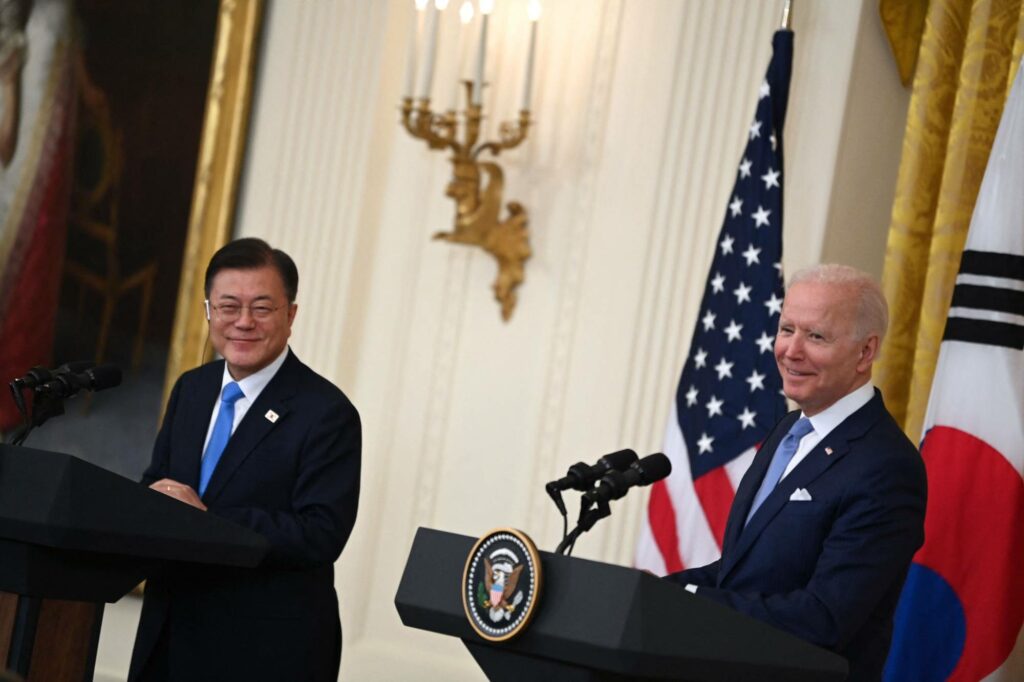The US has agreed to lift restrictions on South Korea’s ability to develop missiles. South Korean President Moon Jae-in announced the development on Friday following his meeting with US President Joe Biden in Washington. US restrictions previously banned Seoul from developing or possessing missiles with a range exceeding 800 km (497 mi).
“We are pleased to announce the end of the missile guidelines. This is a symbolic and practical measure to externally show the solidity of the ROK-US alliance along with the conclusion of the ROK-US defense cost agreement in the early days of the Biden administration’s inauguration,” South Korean President Moon Jae-in said.
In 1979, South Korea agreed to limit its ballistic missile range to 180 km (112 miles) in exchange for the transfer of missile technology from the US.
The limitations were relaxed in 2001, allowing South Korea to develop ballistic missiles with a range of up to 300 km (186 mi) and a warhead weight of 500 kg (1,102 lbs). In 2017, the payload cap was eliminated while the range limit was extended to 800 km (497 mi). All restrictions have now been lifted after 42 years.
Silence From China
This move by the US is widely seen as part of a strategy to counter China in the region, from whom a response is expected.
But the South Korean military said on Monday that China has not raised any complaints about the recent agreement.
“I don’t think it’s an issue that we should make a decision on after taking the effect on neighboring countries into consideration,” Defense Ministry spokesperson Boo Seung-chan said.
“The termination of the guidelines reflects how the Biden administration lays importance on the South Korea-US alliance, as well as the trust in our country based on our national capacity, status and as a model nation for international nonproliferation,” he added.




